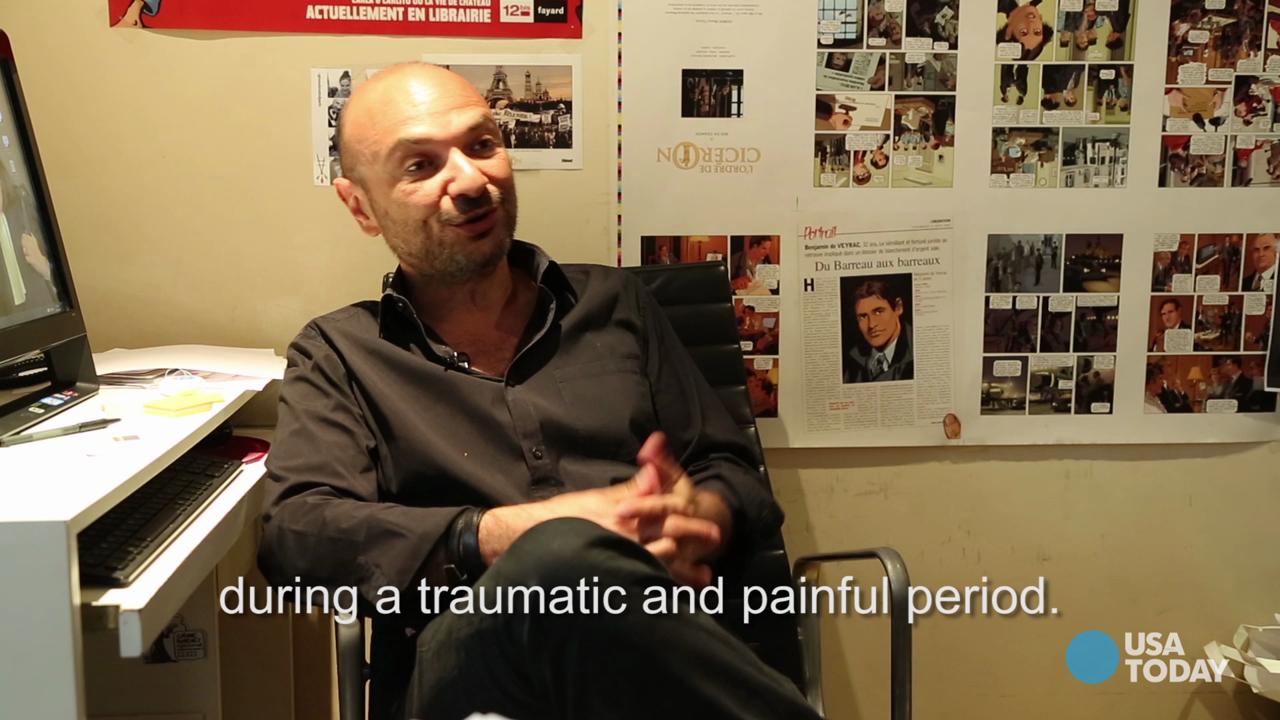Paris tries to move beyond its three days of terror

PARIS — Je suis Charlie? Three months after Paris was stunned by a three-day rampage that left 17 people dead, French solidarity over the attacks has dissipated even if the threat from homegrown terrorism has not.
A few flowers and candles still line the area outside Charlie Hebdo's office on Rue Nicolas Appert, where brothers Said and Cherif Kouachi gunned down the satirical newspaper's editor and staff on Jan. 7. The brothers shouted their mission was to avenge publication of what they said were denigrating cartoons about Islam.
In the eastern neighborhood of Porte de Vincennes, wreaths and other objects are still visible near the kosher supermarket where four people were killed in a separate attack by a colleague of the Kouachi brothers. But the memorials lay scattershot and neglected. The store itself has been completely refurbished, has a new manager and all the people working that day remain on leave.
"France has not forgotten about these events, but the state of grace that followed them has worn off," said Paul Moreira, 53, a documentary maker and investigative journalist. The company he runs is across the hall from Charlie Hebdo. Moreira's employees were the first to come across those killed.
Immediately following the worst terrorist attacks on French soil in more than half a century, the widely circulated phrase Je suis Charlie ("I am Charlie") captured this country's attempts to unite in the face of an attack that threatened to stoke already tense relations among its large Jewish, Muslim and Christian communities.
Three months later, some here believe citizens have moved on too quickly, or worse, that the massacre's awful consequences had no lasting impact.
"The feelings of mainstream French people toward (France's 5 million Muslims) are exactly where they were prior to the attacks," said Ayyoub Sabbar, 23, an Arabic studies student at Inalco, a university in central Paris. "They are divided."
For Albert Abitol, 45, a textile importer who lives near the besieged Hyper Cacher market, routine trips there are now tinged with alarm. "When I see a Muslim on the street, I am reminded of the attacks," he said.
Jean-Pierre Filiu, a Middle East historian and extremism expert at France's Sciences Po university, said that when 4 million people took to the streets of Paris on Jan. 11 in a march of defiance over what happened, many considered the country had triumphed over terrorism and prejudice. "They thought the whole thing was over," he said.
"But ... the issue is still really burning very brightly," said Filiu, who worked as an adviser to French Prime Minister Lionel Jospin around the time of the 9/11 attacks in New York and previously as a diplomat.
Filiu likened extremism in Europe to a town living in the direct path of an active volcano. Conservative estimates put the number of European-born nationals currently aligned with radical Islamic networks — such as the Islamic State — at up to 5,000.
On a recent blustery but sunny spring day, the city's parks were about to burst into flower and hordes of visitors that make this the world's most popular tourist destination were filing past its museums and monuments. One tourist near the Louvre museum, Joshua Plaut, a New York rabbi, said he noticed soldiers armed with machine guns at Charles de Gaulle Airport and at many metro stops.
Despite such shows of force, "Paris never stopped being Paris, even in the heat of the crisis," Mayor Anne Hidalgo said in e-mailed comments.

Across the capital, some 50 denominational schools, 80 synagogues and many Muslim places of worship are under constant police and military protection, Hidalgo said. She said 3,000 soldiers are deployed for that reason.
France's terrorism threat scale remains at "attack level." The Interior Ministry, which oversees security, would not comment on whether terror attacks could become more commonplace here.
At Charlie Hebdo, the remaining staff continue the political and religious satire that made the newspaper a target. Spokeswoman Anne Hommel said journalists at the publication were busy pouring their energy into their work. Richard Malka, the newspaper's lawyer, said it was better not to reflect too much on the attacks.
"It was a historic moment and everyone will remember it," Malka said. "But life comes back, and it goes on, and so should we."
